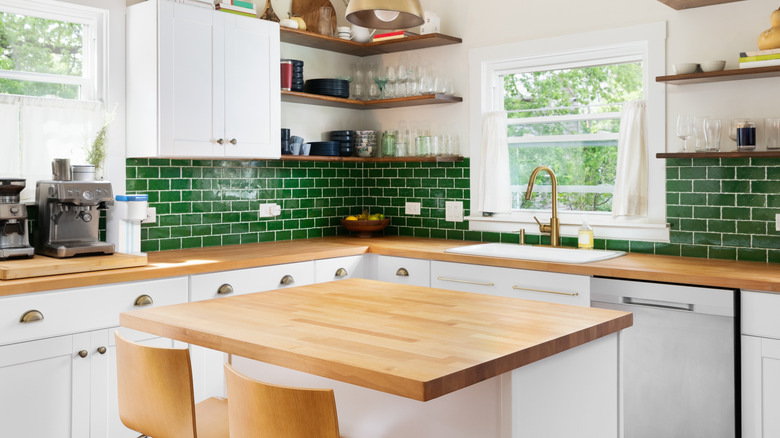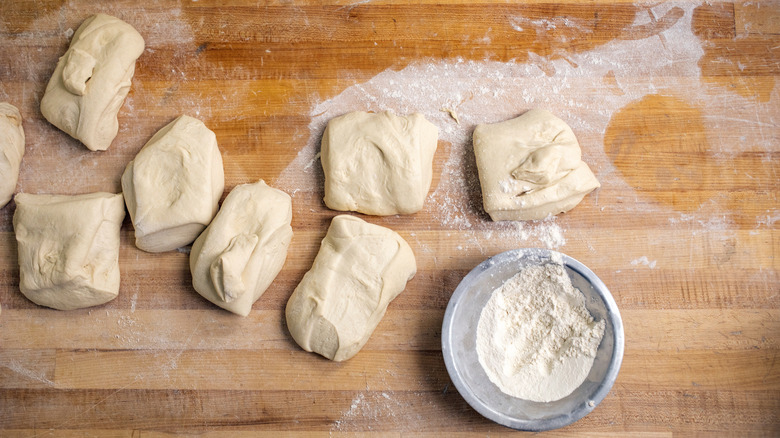The Biggest Mistake People Make When Opting For Butcher Block Countertops
Once a staple in kitchens from the 1970s and '80s, butcher block countertops have long taken a back seat in the world of home design, giving way to more popular materials like quartz, granite, and marble. But these days, the wooden slabs seem to be making a comeback in kitchens across the United States. According to May 2025 data from Google Trends, searches for "butcher block countertops" have increased by more than 5,000% over the past 90 days. But before you go all in on these nostalgic wooden countertops just because they're fashionable again, you may want to consider the biggest mistake folks make: Underestimating how high-maintenance they are.
Sure, butcher block counters can be durable, affordable, and endlessly versatile (wood, in our opinion, is neutral), but they require a ton of upkeep. For one thing, wood is porous, making it susceptible not just to water damage, but to food odors and bacteria, which can become embedded in the wood. Because of this, butcher block counters need to be regularly sealed with food-safe oils, such as mineral or tung, to prevent moisture, smells, and other food particles from seeping into them. Butcher blocks should be oiled at least once a month to keep them in the best condition, although ones in hotter or drier climates may require even more frequent oiling. No doubt, that can take a lot of time out of your schedule every few weeks.
Butcher block countertops are susceptible to wear and tear
In addition to regularly oiling and sealing your butcher block counter tops, they may require annual upkeep and repair. Although butcher block slabs tend to be thicker and more durable than your average wooden surface, they are still prone to nicks, dents, and scratches, especially if they're used for food prep. (Though, despite their name, they should never be used for preparing things like raw meat directly.)
Butcher block counters are also easily damaged by heat; while you can place a hot pan on a marble countertop for a few minutes without worry, that same exposure can cause serious staining on a wooden one like this. Accidents can happen all too often in the chaos of a kitchen, and spills, drops, and other wear and tear can be hard to avoid. Therefore, owners need to plan for additional sanding and/or refinishing of the countertops about once a year. This will help keep the surface as smooth as possible and remove any stains or scratches that have accumulated from use.
Alas, that's not all. Depending on your environment, warping from moisture may occur, as well as drying and cracking. Such issues require — you guessed it — even more maintenance, from clamping to conditioning. So while butcher block counters may look nice and create a cozy environment in your kitchen, you should be aware of how much work they take to upkeep and not make the mistake of thinking they're the easiest to care for.

